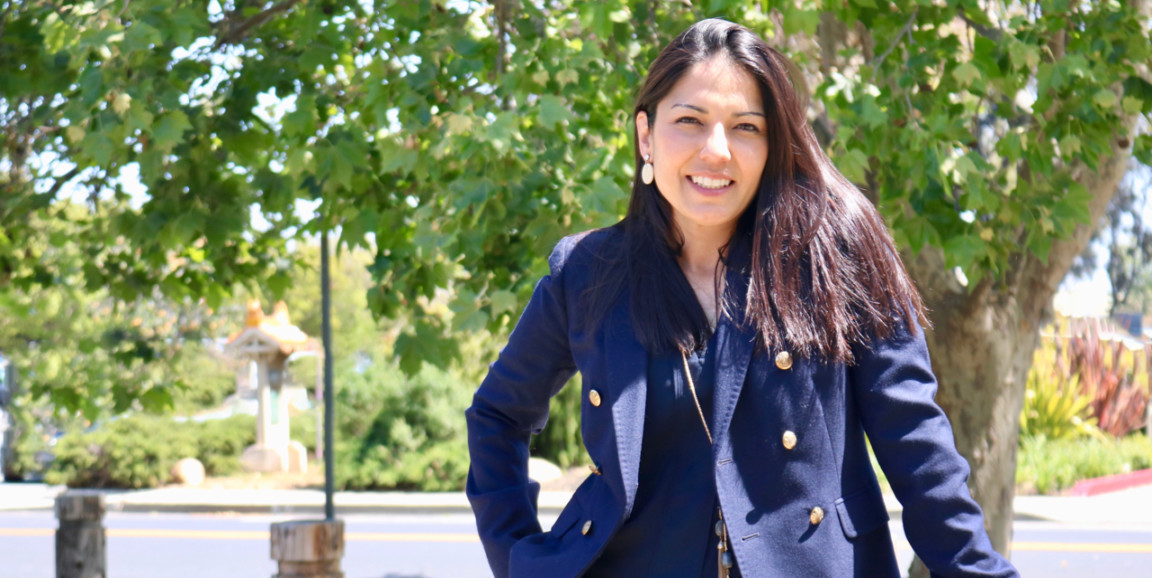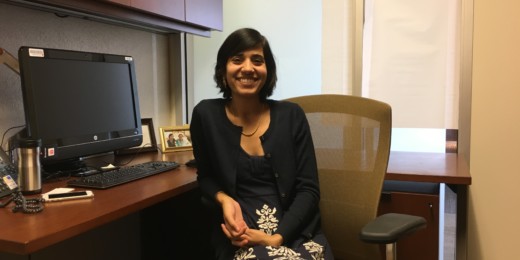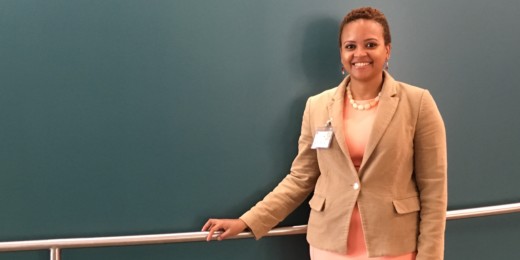First, a quick vocab tip: an oculoplastic surgeon is an ophthalmologist who performs a variety of eyelid and facial surgeries. I learned this recently when I caught up with Andrea Kossler, MD, an assistant professor of ophthalmology and director of ophthalmic plastic & reconstructive surgery and orbital oncology at the Byers Eye Institute.
This is my seventh year here.
I was at the Bascom Palmer Eye Institute at the University of Miami Miller School of Medicine. I lived on South Beach in Miami for about six years as I did my residency and fellowship.
There was definitely an energy and a liveliness on South Beach. However, there is also a liveliness and energy in this area which is infectious when it comes to innovation and caring for the community and the greater good before yourself -- this is true for Stanford especially. It's a collegial environment and everyone has similar goals: to innovate, advance medicine, and provide excellent patient care.
I was recruited to come here when I was a fellow in Miami. I already had a job offer lined up, but I decided to take the chance and come to Stanford where, at the time, there really wasn't an oculoplastic program. So, I created it from the ground up with my colleagues.
It's been challenging, but one of the most rewarding things I've done so far. I'm very happy I took the risk and came to Stanford.
My dad was a general surgeon, back in the days when general surgeons did everything. My earliest memories were sitting on his shoulders when he would do rounds in the hospital, and he would take me to the doctors' lounge where I'd meet his colleagues, and it was just such a treat every time I could be with him.
I've always wanted to follow in his footsteps, I started practicing things like suturing when I was in high school, and I stuck with it.
I'm in the OR two to three days a week, in the clinic seeing patients a day or a day and a half a week. I also spend time doing research, and all the while I have wonderful fellows with me, who get to learn surgery and patient care alongside me.
It's a busy day, a busy life, but always exciting, and you never see the exact same thing twice.
Currently, I'm focusing on the use of oculoplastic surgery to help treat conditions affecting the surface of the eye. My goal in this role is to preserve a patient's vision at all costs, and I can use my plastic surgery skills to help protect the ocular surface, improve eyelid position and function.
My research currently is using new treatments and new surgical procedures to improve dry eye and ocular surface disease. One of the things I've worked on with a team of researchers here is to create a neuro-stimulator that can stimulate the nerves that produce tears. So, a person with dry eyes can use this stimulator and improve their dry eye condition.
I'm learning every day -- from my fellows, my residents, my colleagues, and my patients. I feel like I'll never stop learning, because every day is something new. For example, I recently went to India to learn a new surgical procedure, and it was fantastic to learn from the doctors there and bring that new knowledge and skill set home with me to improve my practice.
I love to travel. I now have two sweet little travel buddies -- my daughters are two and four years old. They're great travelers. Our most recent trip was Mexico, and my girls loved being at the beach, in the pools, and they love to sing and dance. It's lots of fun.
Well, "Game of Thrones" just started, so that will definitely be taking up my time on Sundays for the next few weeks.
If you put your mind to it, you can accomplish anything. That's true for life, for surgery, and for patient care. It's important to never stop trying, never stop learning, and always do good.
Photo by Kathryn Sill






